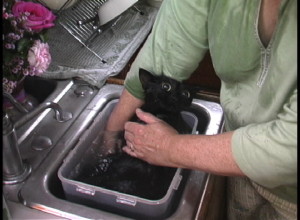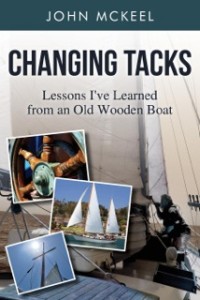Paul’s Prayer for his Friends, Philippians 1:9-11
We are forced to make decisions every day. Have you tried to choose a bag of potato chips lately? There is a whole isle at the grocery store devoted to snack chips. Do I want pita chips, tortilla chips, potato chips, corn chips, rice cakes? Do I was dipping size, ruffles, kettle fried, baked or something else? Do I want salt, sea salt, kosher salt, salt substitute or no salt? Sometimes there are just too many choices!
Most of our decisions aren’t life shattering. The world won’t end if I bring home the wrong can of soda pop but there are choices that carry dire consequences. The most important choices seem to revolve around relationships. Should I trust him? Will you be my friend? I love you.
So how do we make decisions? We need the gift of “discernment.” That’s an essential spiritual quality. In the days of the New Testament, there was even a miraculous gift of discernment. The Holy Spirit gave people insight (1 Corinthians 12:10) and the Apostle Paul prays for his friends in Philippi, “that you may be able to discern what is best,” (Philippians 1:10) and tells their neighbors, the Thessalonians, to “Test everything. Hold on to the good. Avoid every kind of evil,” (1 Thessalonians 5:21, 22).
One way to describe the goal of the Christian life is “Learning to Love.” Some people say “Love is blind” but Christian love is very wise. Do you remember the story of the Philippian Church? They were Paul’s very dear friends and we can learn about love by carefully examining Paul’s prayer for his friends, Philippians 1:9-11.
Philippians 1:9 And this is my prayer: that your love may abound more and more in knowledge and depth of insight, 10 so that you may be able to discern what is best and may be pure and blameless until the day of Christ, 11 filled with the fruit of righteousness that comes through Jesus Christ—to the glory and praise of God.
Your Love
When we think about “love,” we are probably thinking about romantic love. It’s the kind of love that fills your stomach with butterflies when the object of your affections walks into the room. That kind of love is starry-eyed, floats on clouds and is very apt to be blind.
But here, Paul is talking about agape love – love with both eyes wide open. This kind of love, Paul explains to his friends in Philippi requires a special kind of knowledge and a depth of insight that will allow it to make decisions. I like Eugene Peterson’s paraphrase of this passage, “Learn to love appropriately. You need to use your head and test your feelings so that your love is sincere and intelligent, not sentimental gush.”
Have you known wonderful loving people who make one relationship mistake after another? They keep falling in love with jerks and losers. They haven’t learned to be discerning.
Discernment
And so the Apostle Paul continues and explains the purpose of this educated love is discernment. The Christian Life is an examined life. It is important to go through life with both eyes open because sometimes it can be hard to judge whether something is good or evil. For example, is money good or evil? (The discerning answer is “yes.”)
Likewise we need discernment to make judgments about the different situations we find ourselves in and the people we meet. Nehemiah was a great leader and involved in a very important project. The Israelites had returned to their homeland after the Babylonian Captivity. The city of Jerusalem had no wall and was completely at the mercy of her enemies. Nehemiah was changing that. He inspired the people to rebuild the wall. Not everyone was happy. The enemies of Nehemiah and the Israelites tried to distract Nehemiah from his work by inviting him to a meeting. (That sounds very modern doesn’t it?) But Nehemiah saw through their ruse. He was discerning (see Nehemiah 6:12, 13) and didn’t allow himself to become distracted by their trickery.
King Solomon asked God for wisdom and used his powers of discernment to decide a case of mistaken mothership. Two women both claimed a certain baby was their child. Both women were mothers but one had accidently smothered her baby in the night. Shattered, she swapped her dead child with the other mother’s baby. Now both women stood before Solomon demanding the king decide who child this baby truly was. How could Solomon discover the truth in the days before DNA testing? The answer was by being discerning. “Divide the baby in half and give it to both women,” was his callous answer. It was a clever ruse. In horror, the truth mother cried out, “Let her keep the baby! Just don’t hurt it!” The true mother was willing to forfeit her motherhood rather than see her child die. Solomon smiled and gave the baby back to its mother. (See 1 Kings 3:24-28.) Discernment is a wonderful gift.
Time and space don’t permit us to look at the stories of how Peter used discernment when Ananias and Sapphira tried to deceive the Church (Acts 5:3) Later Peter was able to see into Simon the Sorcerer’s heart (Acts 8:23) and Paul discerned the true source of a girl’s fortune-telling ability (Acts 16:18).
Why aren’t we more discerning?
Doesn’t it seem like our world has shifted from black and white, right and wrong, into a world that’s been painted in shades of gray? Tolerance is stressed everywhere and that’s a good thing but it leads to something called “Moral Relativism.” No one wants to make a judgment. We all just have preferences. Nothing is absolute.
Closely related to relativism is the desire to be popular. This is even true in the church. We don’t talk about doctrine and it seems like we believe that if people like us they will like Jesus.
Third, there is a prevalent spiritual immaturity. The Hebrew writer warned, “11 We have much to say about this, but it is hard to explain because you are slow to learn. 12 In fact, though by this time you ought to be teachers, you need someone to teach you the elementary truths of God’s word all over again. You need milk, not solid food! 13 Anyone who lives on milk, being still an infant, is not acquainted with the teaching about righteousness. 14 But solid food is for the mature, who by constant use have trained themselves to distinguish good from evil,” (Hebrews 5:11-14).
How can I be spiritually discerning?
First, we’ve got to want it. To book of Proverbs (which was written to impart wisdom) begins by saying, “Make your ear attentive to wisdom, incline your heart to understanding; for if you cry for discernment, lift your voice for understanding; if you seek her as silver, and search for her as for hidden treasures; then you will discern the fear of the Lord, and discover the knowledge of God,” (Proverbs 2:2-5).
Second, pray for discernment. Do you remember the story of King Solomon? He had an amazing offer. When he began his reign, God was willing to grant a wish. What would you ask for? Solomon asked for wisdom, (1 Kings 3:9-12).
Third, learn from others. Find a mentor who models discernment and spend time with them.
Four, learn to listen to the Spirit. Get in touch with your feelings. Have you noticed there are two spirits surrounding your soul? What some Christians have called the “spirit of desolation” that leaves us feeling depressed, restless, uneasy; and a “spirit of consolation” where we feel comfortable, at peace, content. Now which one is from God and which one is from the enemy? The answer depends on our actions.
If we are living an immoral life apart from God, Satan’s voice will be the spirit of consolation and the Spirit of God will cause us to be uneasy. On the other hand, if we are walking with God, God’s Spirit gives us peace while Satan will be taunting us.
So learning the virtue of discernment begins with us judging our own life.















